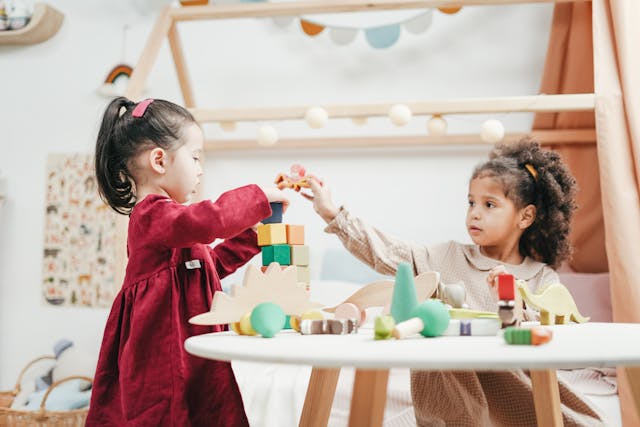Importance Of Developing Self-Regulation Skills For Students
Students encounter many obstacles in the fast-paced, cutthroat world of today, both personal and intellectual. They must handle a rigorous workload, negotiate interpersonal interactions, and manage stress and anxiety. By learning self-regulation techniques, they may face these obstacles with resilience and confidence.
What Are Self-Regulation Skills?
Self-regulation is the capacity to keep an eye on and control your thoughts, feelings, and behaviour in order to make them appropriate and productive. These abilities assist you in controlling your behaviours and responses to emotions and external stimuli. There are two kinds of self-regulation:
Behavioural Self Regulation
How you respond to various circumstances and accomplish your long-term objectives is determined by your behavioural self-regulation. For example, even if you may find it difficult to spend an hour in the gym, you do it simply because you desire to maintain a healthy and fit life.
Emotional Self Regulation
The ability to control your emotions, especially in the face of difficult work situations, is determined by your emotional self-regulation. Being in control of your emotions makes you more trustworthy, courteous, and sympathetic to other people.
Why Is Self Regulation Important For Students?
Enhanced academic achievement is one of the main advantages of self-regulation. In the classroom, students who can control their emotions and behaviours are more attentive, involved, and effective. They are more adept at setting reasonable objectives, managing their time, and enduring challenging assignments. Additionally, compared to other students who lack self-regulation skills, they typically have higher grades and greater attendance.
Self-controlled students are more capable of avoiding temptation and making wise choices. Their likelihood of making wise choices is higher, and they are more unlikely to partake in harmful activities like substance misuse or adultery. Emotional intelligence also heavily relies on self-regulation. Students who can identify and control their feelings are better able to manage stress and deal with challenging circumstances. They are better able to build strong bonds with teachers and peers because they are more understanding and sympathetic towards others.
Students who possess emotional and behavioural self-control are more capable of recovering from failures and setbacks. They are more inclined to view difficulties as chances for development than as insurmountable roadblocks. Realistic goal-setting and achievement increases the likelihood that students will feel motivated and accomplished. They are more adept at setting priorities for their time and money and can deconstruct difficult projects into smaller, simpler to accomplish sections.
Self-control is essential for mental well-being. Students who lack self-regulation are more likely to have mental health problems such as depression and anxiety. Students who learn self-regulation techniques are more equipped to handle stress, deal with challenging emotions, and keep a positive attitude.
How To Develop Self-Regulation Skills In Students?
Self-regulation entails a collection of abilities that enable us to control our strong emotions and deliberate before acting. Here are some tips for helping students improve their ability to regulate themselves.
Stay Calm And Model Self Regulation
Recall that children are in a survival state when they react in the present moment. Since they are incapable of responding to reason or logic, do not attempt to communicate with them. Instead, remain composed, demonstrate empathy, assist them in developing self-awareness, and lead them through calming techniques and sensory experiences.
Develop Realistic Expectations
To find out where students need help, evaluate their skills. Young children’s brains are still developing and have less self-control. Remember that success breeds more success, so only ask children for as much as they can manage. Anticipate obstacles to learning and development.
Reduce Unnecessary Demands
Examine the children’s schedules to ensure they aren’t overburdened. Children who have too many obligations will become more stressed and have less energy to control.
Be Supportive
As kids learn to control themselves, help them feel understood, appreciated, and cared for. Be genuinely interested in them and act as a mentor and coach to them.
Create Conversation
Create a regular conversation about self-regulation in the classroom to provide kids a starting point for discussing and developing self-awareness. The technique becomes more transparent when it is incorporated into the conversation rather than being something that some students seem to understand while others do not.
Give Immediate And Specific Feedback
Encourage students to actively consider what methods have and have not worked for learning particular types of content, and provide comments on how they are reaching the course objectives. In addition to giving them comments on their reflection, you might invite them to consider how they can enhance their learning techniques.
Use Rewards And Praise
Rewards might take the form of exceptional privileges (movies, activities, purchasing an item) or common everyday advantages (screen time, internet, video games, visiting a friend’s house, or anything the child enjoys). Encourage kids to develop and practise self-control. Honour minor victories.
Qualities Of Students With Self-Regulation Skills
Students that possess self-regulation skills can achieve all of their goals and build a positive reputation among their peers. Nothing can exhaust them or extinguish their inner drive to keep going, no matter how hard they try.
- Highly esteemed persons possessing exceptional personal qualities
- Having leadership characteristics and making wise decisions regardless of the circumstances.
- Self-motivation and effective communication skills.
- The ability to persevere and endure
- Trying until they get it right
- Extremely situation-adaptable
- Finding the good in the people and situations around
- Unconcerned with the way forward
- Seeing the potential in every hardship
A person with strong self-regulation abilities can achieve significant success in life. Teachers must make an effort to teach their students self-control even though it is not a subject covered in the classroom in secondary schools in Thrissur. It would propel them forward and lead them to their ideal location.
Also read: Top Grades with the Best Marketing Assignment Help













Post Comment